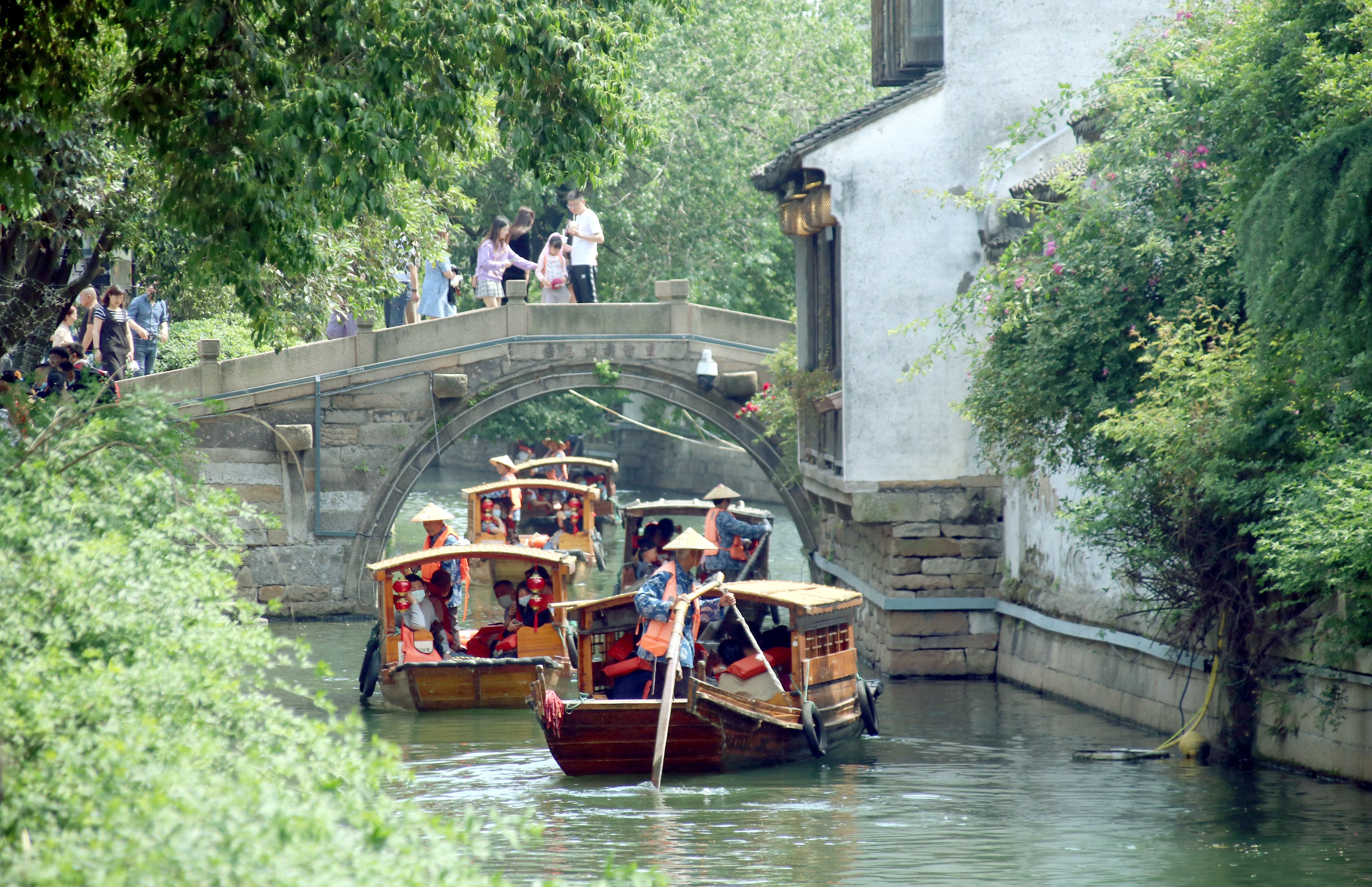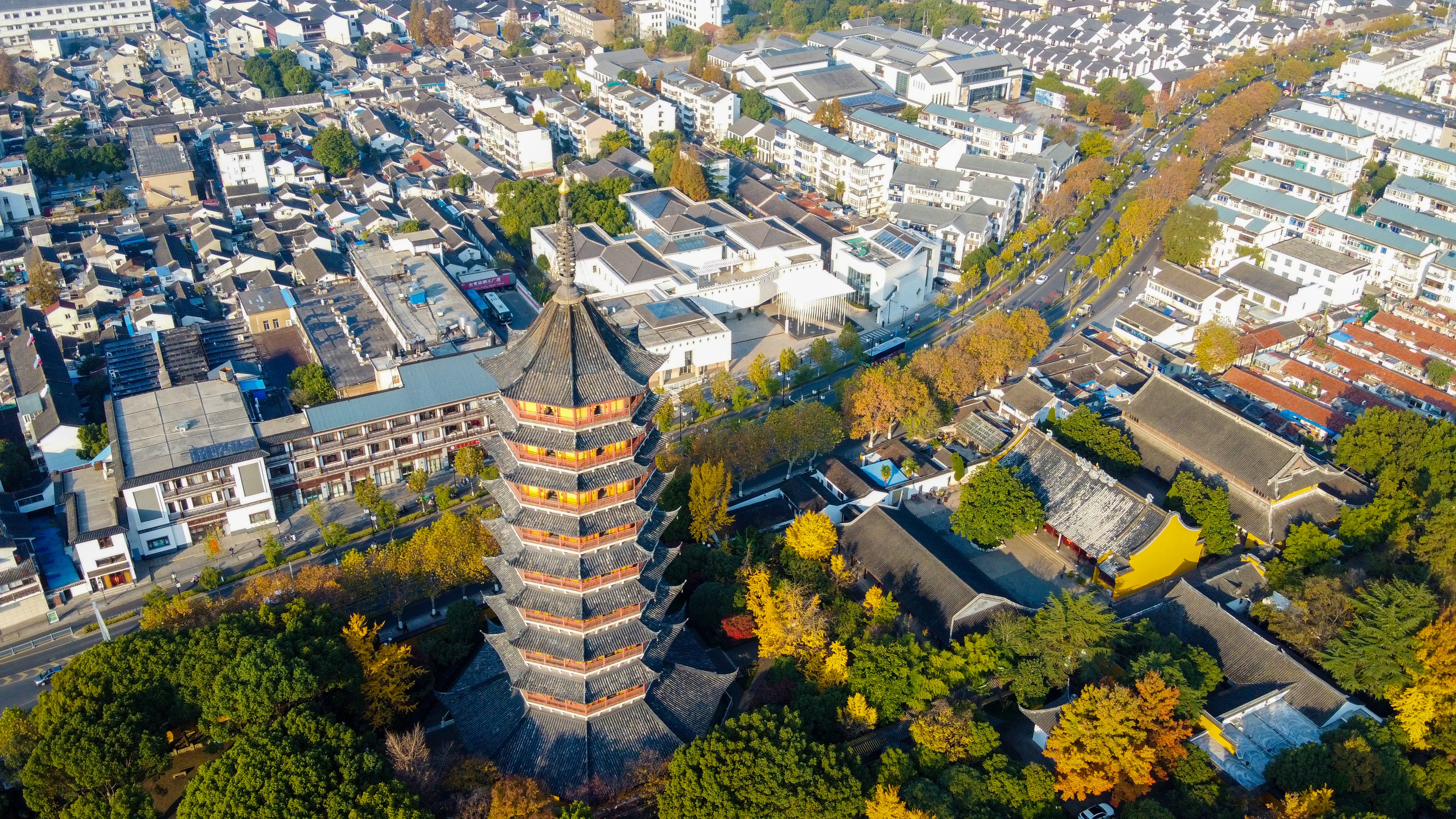Suzhou makes best use of ancient and modern
THE ARTICLES ON THESE PAGES ARE PRODUCED BY CHINA DAILY, WHICH TAKES SOLE RESPONSIBILITY FOR THE CONTENTS

For centuries, canals and rivers have flowed past ancient houses in Suzhou, Jiangsu province. The white-walled homes are clad with black tiles dotted with moss.
Under the eaves of properties in narrow, neat alleyways, locals chat in the soft Wu dialect, which can be difficult for travellers from outside the area to understand.
The city of 10 million people, which is a major tourist draw, has taken vast strides in recent years, with a booming modern manufacturing sector established in newly developed industrial zones.
The city also boasts a proud history that locals have meticulously protected. Construction of the city began more than 2,500 years ago when a Wu vassal state was established during the Spring and Autumn Period (770-476 BC).
Gusu district in the heart of Suzhou is home to the city’s rich cultural legacy – best exemplified by its classical gardens, which are a UNESCO World Heritage site.
Nearly one million people live in the district, including Xu Gangyi, 70, a retired public servant who, since the early 1990s, has regularly walked around the city’s ancient neighbourhood in his spare time, taking photos to record people’s lives.
“A city cannot grow without urban development, but as demolition work began on some of the old buildings, I felt that something may be lost for ever,” he said.

The 5.7-square-mile ancient city core area is surrounded by moats, and Xu grew up near Panmen Gate, which traverses one of these waterways.
Xu, who has a deep regard for the history of his home town, has often written letters to the government appealing for ancient sites to be spared from demolition.
“Everything we have now was left by our ancestors,” he said. “What will we leave for our children? Our roots lie in this ancient city, and it has influenced our character. We have to take good care of it.”
He did not have to wait long to receive positive feedback. In 2002 a comprehensive project to restore the ancient city area was initiated by the local government. A series of renovation projects has followed.
During the 1990s a construction rule was rigidly enforced. This is still the case today. No new building in the ancient city area can be higher than 79ft – one-third the height of Beisita, a landmark Southern Song Dynasty (1127-1279) pagoda in downtown Suzhou. Thanks to the rule, no skyscraper breaks the skyline in the ancient city.
In late March the city government issued a plan for further conserving the old city, focusing on the area within the moats.
Zhou Liping, an official from Pingjiang subdistrict, who is in charge of cultural development and revitalising ancient neighbourhoods, said such work involves far more than turning old buildings into showcases for history.
“The buildings are alive only if they are given new roles. Their exteriors should remain intact, but the interiors have to be adapted to the needs of modern life, such as hotels, bookstores and cafés.”
Pingjiang Road, an ancient area centred along a one-mile-long main lane, boasts a long history, typified by its architecture.
Wu Liangying grew up in Pingjiang Road. Once an established performer of pingtan – an indigenous type of singing from Suzhou – Wu, who is in her 50s, chose to return to her old neighbourhood from elsewhere in the city in 2017.
She opened a teahouse in a renovated villa built in the 1920s, where she holds daily afternoon pingtan performances. Tickets for a show, which include a cup of tea, cost 38 yuan (£4.50).
“There are plenty of opportunities to seek a new career in other cities, but like many others, I choose to stay [in Suzhou],” she said. “Life here is comfortable and we cherish the emotional support given by this area and its culture.”
Zhou Furong and Lu Yujun contributed to this story.
Previously published on Chinadaily.com.cn
